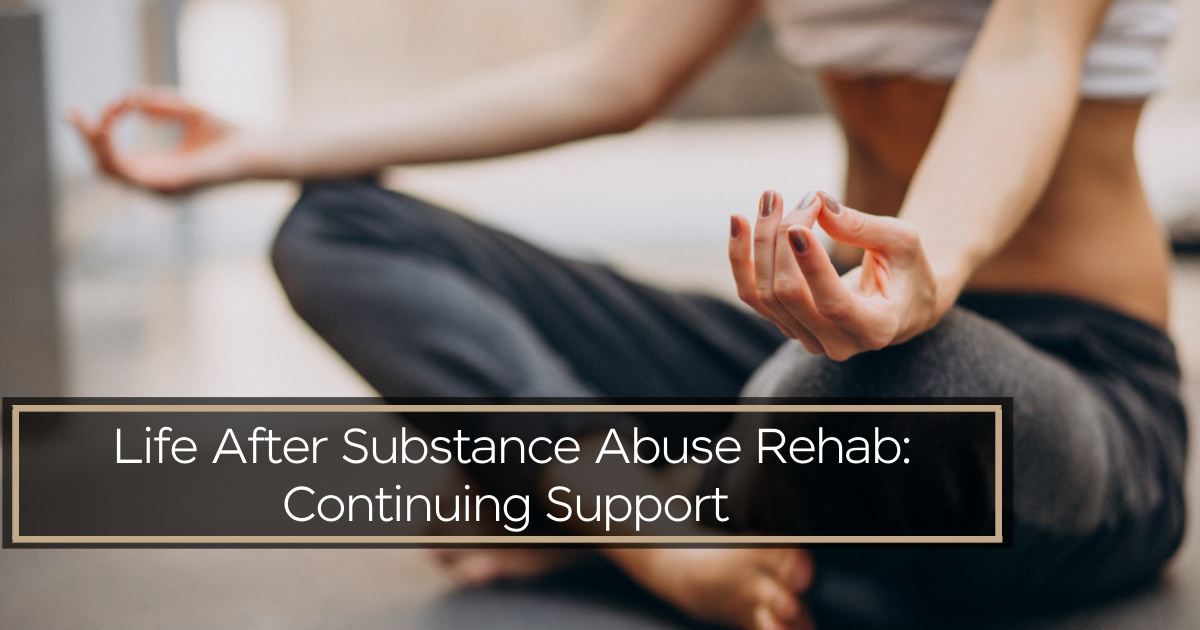Completing any program for substance addiction treatment is a huge step in your recovery journey. However, as we may all know – recovery doesn’t stop once you are out of rehab. Life after rehab involves many new challenges, but also opens the door to growth and a renewed sense of purpose. Long-term sobriety often requires ongoing addiction recovery care, a strong support network, and a commitment to a holistic approach to addiction recovery.
What Happens After You Complete Rehab?
Leaving an inpatient rehabilitation program can feel overwhelming at times. The structured environment provided during substance abuse therapy offered a safe space to focus on healing. Once back in everyday life, temptations and triggers can reappear. Adjusting to life after rehab means applying the skills that have been learned during addiction treatment to daily situations, such as knowing how to manage stress, and make healthy decisions.
Life after drug or alcohol rehab involves building a routine that supports sobriety. Regular follow-ups with your addiction recovery care team can play a significant role in guiding you through the transition. The support and advice that you receive during these check-ins can help reinforce your commitment to recovery and staying sober.
Importance of Holistic Addiction Recovery
Holistic addiction recovery typically considers a combination of the mental, emotional, and spiritual aspects of well-being. Healing the whole person, rather than focusing solely on the addiction, is critical in achieving long-term recovery goals. Activities such as yoga, meditation, and art therapy may contribute to both mental and emotional health. Physical exercise and nutrition are also vital components of a holistic approach to addiction recovery. These practices are thought to help reduce the risk of relapse and improve the overall quality of life after rehab.
Continuing Sobriety Support Post-Rehab
Focusing on continuing sobriety support after substance abuse rehab is also important. Addiction recovery care is an ongoing process. Staying committed to the work that began during treatment is essential for maintaining sobriety. Regular participation in addiction support groups, therapy sessions, and counseling commonly provide a necessary support system. These therapies can make it easier to keep recovery goals in focus and can provide a sense of community.
Individual & Group Therapy
Individual therapy remains essential in life after rehab for substance and alcohol abuse. Personalized attention in therapy sessions helps address unique challenges and helps to develop strategies for managing them. Continuing to explore any underlying issues that may have contributed to addiction can prevent relapse and can support ongoing recovery as well. Group therapy offers a different, but equally important, form of support. Sharing experiences with others can be healing. Participants in group therapy learn from one another, gain new perspectives, and help build a peer network that’s committed to sobriety.
Sobriety Support Groups
Sobriety support groups are vital to life after drug and alcohol rehab. Groups, such as Alcoholics Anonymous, provide a supportive community of individuals who are also in recovery. Regular participation in sobriety support groups helps to reinforce the commitment to staying sober. Members of these types of groups share their experiences, challenges, and successes by offering mutual support and encouragement. The connection with others who have faced similar struggles can be a powerful motivator in maintaining sobriety.
Create New Habits
Creating new and healthier habits is yet another part of life after alcohol rehab or drug rehab. Developing a routine that supports sobriety includes setting regular sleep patterns, eating a balanced diet, exercising, and engaging in activities that bring fulfillment. Self-care and personal growth play essential roles in sustaining long-term sobriety. Replacing unhealthy habits with positive ones supports recovery and improves overall well-being.
Closing Thoughts About Addiction Treatment
Life after rehab gives you an opportunity to build a great life without the use of drugs or alcohol. Staying engaged in addiction recovery care, participating in sobriety support groups, and adopting a holistic approach to addiction recovery are key steps to achieve long-term sobriety. Creating new habits and maintaining connections to support systems can help you stay sober and make it possible for you to thrive in your recovery journey.








